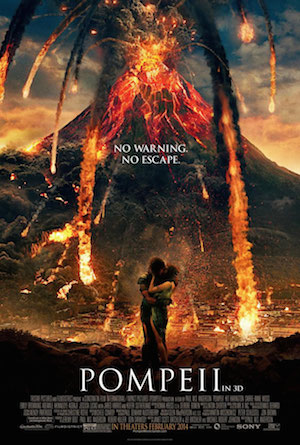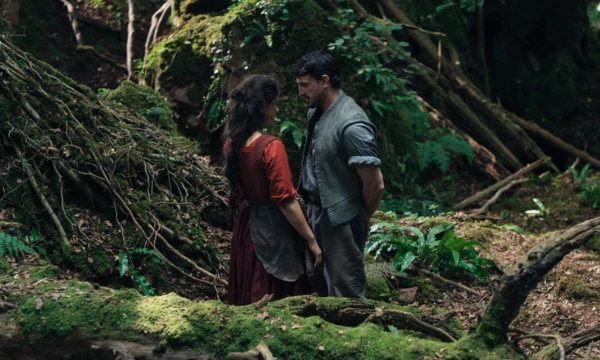Pompeii

With approximately 2.5 million visitors every year, Pompeii is one of Italy’s most popular tourist attractions. The ancient Roman city was destroyed in AD 79 by the eruption of Mount Vesuvius, covering the Pompeii in 12 layers of ash and volcanic rock that rained down for six hours. Because of the lack of air and moisture, artifacts (including bodies) of the city have been well-preserved for centuries, providing us with some insight into the lives of the unfortunate citizens of Pompeii during the Pax Romana. Paul WS Anderson’s big budget Pompeii transports us back to ancient Rome to explore the mystery of the people that lay frozen in time.
The movie opens with scenes of bodies and quotes from Pliny the Younger, witness to the destruction: “You could hear the shrieks of women, the wailing of infants and the shouting of men…many besought the aid of the gods, but still more imagined there were no gods left.” It is clear from the beginning that the film relies heavily on the evidence presented by Pliny, and his influence on Anderson is apparent throughout.
Historical novelty aside (or perhaps a unanimous fascination with the Roman Empire), the movie’s most obvious selling point is a semi-naked Game of Thrones’ Kit Harington as Milo, a ficticious Celtic slave and “hero of Pompeii”. Having beefed up for the role, Harington first appears onscreen showing off his ripped body as he slays gladiators in the amphitheatre. Cassia, the daughter of the city’s ruler, becomes fixated on Milo and the film proceeds to revolve around their romance.
What does disappoint is the dialogue throughout, which is unmistakably predictable, though the eye-popping effects of blazing fireballs, crumbling buildings and gory gladiator showdowns somewhat make up for it. Swords, sandals and a cliché romance – Pompeii is certainly a guilty pleasure.
Gemma Whitfield
Pompeii is released nationwide on 30th April 2014.
Watch the trailer for Pompeii here:






















Facebook
Twitter
Instagram
YouTube
RSS